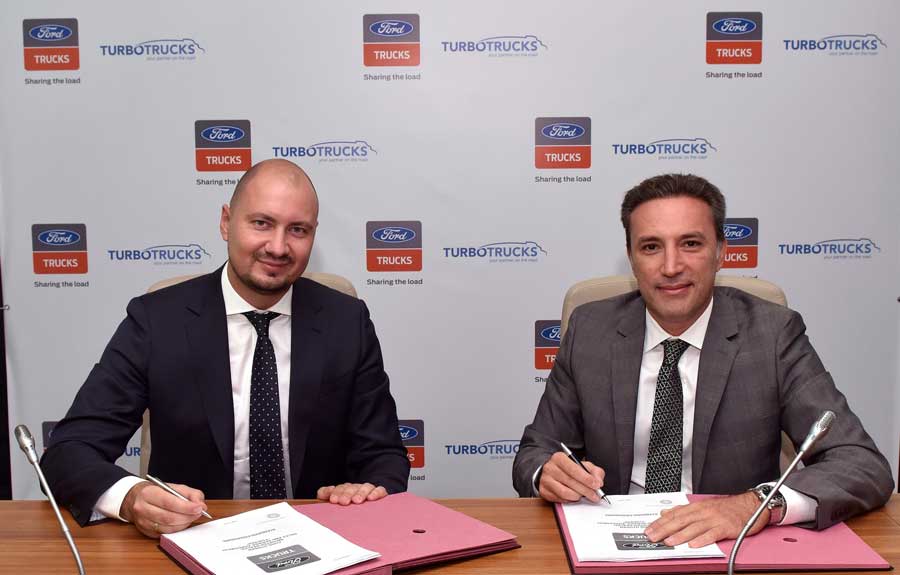As key players in the McDonald’s supply chain, HAVI and Scania are responding to growing consumer demands for more sustainable transports. In Spain, the companies are accelerating the five-year roadmap that aims to cut CO2 emissions from the restaurant chain’s delivery vehicles.
McDonald’s logistics network transports food products more than 250 million miles every year. As well as ensuring thousands of products arrive at McDonald’s restaurants each day safely and in the best condition, McDonald’s is committed to work with its suppliers and their partners to minimize the environmental footprint on its logistics activities.
HAVI Spain plans to add 14 gas-fueled vehicles to deliver product to McDonald’s restaurants from HAVI’s distribution centers in Madrid and Barcelona, by the end of this year. 12 of them run on liquified natural gas (LNG) and two run on compressed natural gas (CNG). Previously HAVI Spain had two CNG trucks making the new total 16 gas trucks.
The trucks are designed to generate virtually zero air pollution and significantly reduce carbon emissions in cities. LNG and CNG reduces carbon emissions by about 20 percent. With gas engines, the McDonald’s supply chain is also future-proof for liquified and compressed biogas which can be blended into the natural gas or replace it entirely, enabling possible reductions of CO2 emissions by up to 90 percent, once broadly available in the market.
Equipped with low-noise engine and cooling equipment, the trucks are also much quieter than conventional delivery vehicles, helping to further reduce the impact of urban deliveries. In Madrid, the vehicles will be fitted with special electrically-driven cooling equipment to cut carbon emissions and noise levels even further.
The HAVI-Scania greener fuels roadmap aligns directly with MOVALT, a Spanish government scheme that promotes the transition of road transport fleets to low- emission vehicles. This initiative supports McDonald’s Scale for Good initiative, focusing on priority areas to drive industry-wide change on some of the most pressing environmental and social challenges the world is facing today: Beef Sustainability, Commitment to Famillies, Climate Action, Packaging & Recycling, and Youth Opportunity.
In March 2018, McDonald’s became the first restaurant company in the world to address global climate change by setting a verified target by the Science Based Target initiative to significantly reduce their greenhouse gas emissions.
As McDonald’s lead logistics provider, HAVI recognizes that it has a critical part to play in the success of McDonald’s sustainability efforts and truly use our Scale for Good. With this in mind, HAVI joined forces with vehicle manufacturer Scania to roll out a five-year roadmap towards significantly reducing the carbon footprint and overall environmental impact of McDonald’s supply chain. In Spain, the two businesses are pushing the boundaries even further by accelerating the deployment of alternative fuel delivery vehicles.
John Alves, Managing Director, McDonald’s Spain, says: “Innovation is absolutely critical to our sustainability journey and to use our scale for good. Our work with companies like HAVI and Scania takes a proactive approach to finding and implementing more sustainable supply chain solutions, and contributes to our global supply chain and sustainability strategy.”
Rafael Gómez, Senior Vice President, Operations and Freight Management, HAVI: “As McDonald’s lead logistics provider, we have the clear commitment to support the business’s Scale for Good and all their associated sustainability initiatives. We want to be a frontrunner at changing towards new standards for urban deliveries and implementing specific measures to benefit the environment and communities where we operate.”
Sebastián Figueroa, Managing Director, Scania Iberia: “This partnership is an example of how transport companies, logistic provider and trucks manufacturers can work together to lead the shift towards a sustainable transport system. It is encouraging to see more and more customers and customers’ customers demanding this type of solution.”










